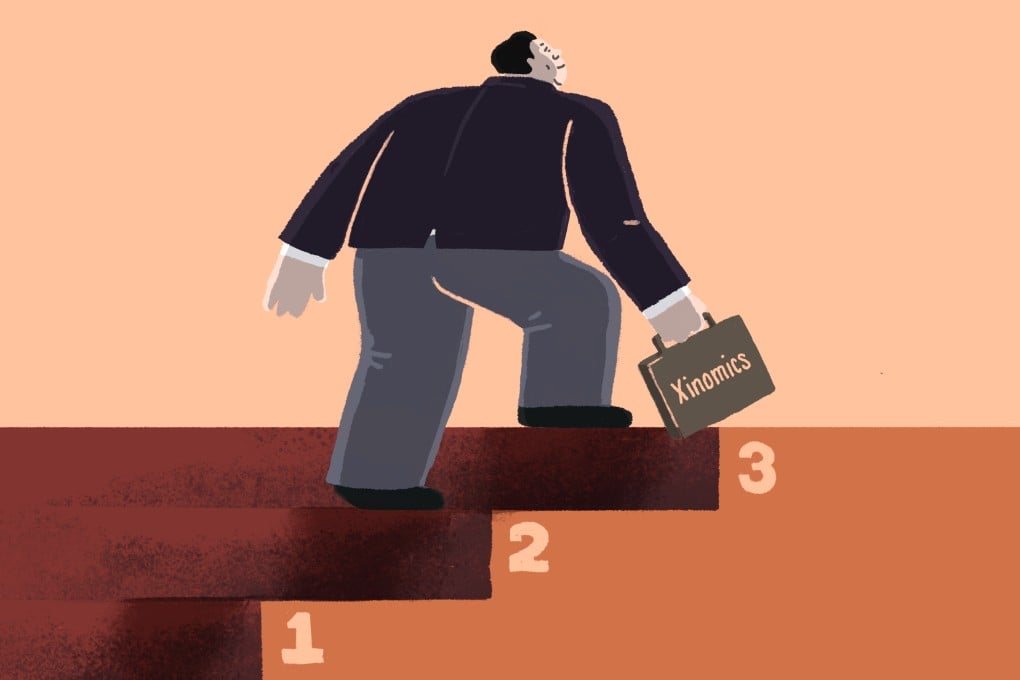Xi Jinping looks to take China beyond Deng Xiaoping’s ‘get rich’ era with historic third term
- Xi Jinping has stamped his mark on the economy like few of China’s leaders before him. But some experts say important reform has taken a back seat
- How China will realise Xi’s goal of doubling GDP, as well as per capita income, by 2035 will be high on the agenda at this year’s 20th Party Congress

On a cold morning in mid-January, two dozen senior Communist Party officials, wrapped in black coats to protect them against the winter chill, stood solemnly in rows at the courtyard of Guohong Mansion, home to China’s top economic planning agency.
The group had gathered for the launch of the Xi Jinping Economic Thought Research Centre, the 18th research institution set up since the Chinese president’s philosophy was enshrined in the constitution in 2018.
The inauguration reflected not only Xi’s tight grip on power, but showed how central his economic thinking – dubbed ‘Xinomics’ – had become in China’s affairs.
Xi Jinping is about taking China to a new era and a new direction of travel ... not under Deng Xiaoping’s policy line
Since taking office in 2013, Xi has expanded China’s economic influence abroad through the Belt and Road Initiative and introduced an inward-looking economic strategy at home. He has shaken up key industries and stared down US threats of decoupling. As president, he has left his mark on the economy like few before him.
“Xi Jinping is about taking China to a new era and a new direction of travel, under the guidance of his thought, not under Deng Xiaoping’s policy line,” said Steve Tsang, director of the SOAS China Institute in London.
